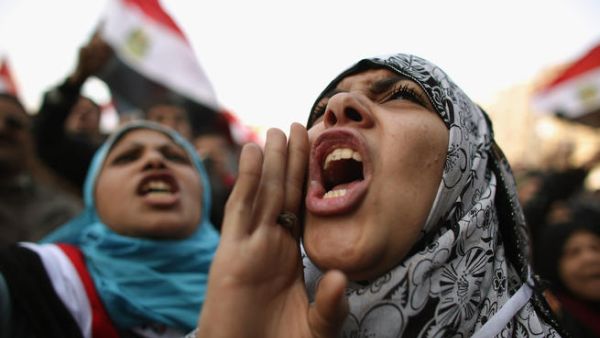Middle East nations performed poorly in an annual league-table of corruption across the globe. It was a bleak outlook for the newly hopeful revolution states also, who hardly came up smelling of roses in the ‘cleaned-up act’ stakes.‘Arab Spring’ states conclusively performed worse, with the exception of Libya.
The annual Corruptions Perceptions Index by Berlin-based Transparency International exposes the slippery slope for Arab corruption: several countries in the MENA region slipped further down the rankings, although some marginally improved.
Transparency International’s Director for the Middle East and North Africa, Christoph Wilke points out that corruption remains a big issue in the region, saying, “the expectations of the people exceed what a government is sometimes capable of doing,” adding that people need to be able to feel engaged with anti-graft processes. The results bear out that “corruption remains a big problem” in the region, with most countries in the bottom third of the table.
The index is based on how corrupt the public sector is in each county. All but one country in the Middle East, Qatar, home to Al Jazeera news service, scored below 50, out of a possible 100, showing, according to Transparency International’s diagnosis a “serious corruption problem.”
In the rat-race, Egypt slipped six places to 118; Tunisia dropped two places to 75. Morocco, largely bereft of mass protests seen elsewhere, slipped to 85th. Libya managed to perform slightly better, coming in at the lower rungs of 160, compared to a lowly position of 168 last year.
Syria, stuck in a vicious civil war, which has effectively destroyed the already fragile, state-based economy, came in at 144. Iraq stands as the most corrupt country in the region, at pole position of 169 out of a possible 174. Yemen only performed marginally better than Syria, being listed 156.
At the bottom of the table came Afghanistan, North Korea and Somalia. The least corrupt, according to the group, are Denmark, New Zealand and Sweden.
Wilke said that governments “need political systems, audit mechanism and government agencies” to hold people to account, whilst also offering “freedom of information and access to information” frameworks and to offer protection whistle-blowers.
Tunisia and Yemen are two of the ‘Arab Spring’ nations that have started to put public access to information laws on to the statue books, as there are in Jordan. But the fear is the reality of such laws does not make it any easier for people to hold the public sector to account.
Corruption is seen to be endemic across the Middle East and North Africa region, and has been a rallying call for protesters during the uprisings that spread across the region in the last two years. Corruption ‘crimes’ cited range from small theft, to large-scale embezzlement.
Tunisia’s former President, and first leader in the Arab world to be pushed aside by popular protests, Ben Ali was tried in absentia for money laundering and in Egypt, Hosni Mubarak was put on trial for corruption.
Egypt has set up the ‘Illicit Gains Authority,' although this is mainly aimed at recovering assets from Mubarak-era crimes.
At a United Nations conference against corruption in October last year, Yury Fedotov, executive director of the United Nations Office on Drugs and Crime said in an opening plenary the, "There can be no doubt that the Arab Spring was an emphatic rejection of corruption and cry for integrity.”
The call to combat graft across the region is being shouted the loudest by protesters on the streets, although some leaders are taking note, and potentially fearing unrest on their streets, have mimicked those on the streets, insisting illegal acts will be punished.
Only today, several Jordanian newspapers carried coverage of an interview with King Abdullah II, whose stated aim is to crack down on corruption, something the protesters across the Kingdom have been calling for in weekly Friday protests, that reached their crescendo with the decision to lift fuel subsidies.
In the interview, King Abdullah said: “Current economic conditions require that everyone manage state resources transparently and responsibly… It (talking of a new ‘national integrity system’) should also guarantee justice in the distribution of resources and that anti-corruption efforts are expedited.” Adding that combatting corruption is a top priority for the Hashemite Kingdom.
In a region where protesters have removed autocratic and corrupt regimes, the hope now is that new governments can introduce the necessary legislation and finally meet the anti-graft demands of the people on the street.
Tell us what you think? Is this bleak diagnosis mean that the Arabs should despair? What can be done to end corrupt practices? Do you have trust in governments in the MENA region to combat corruption? Do let us know your thoughts.







